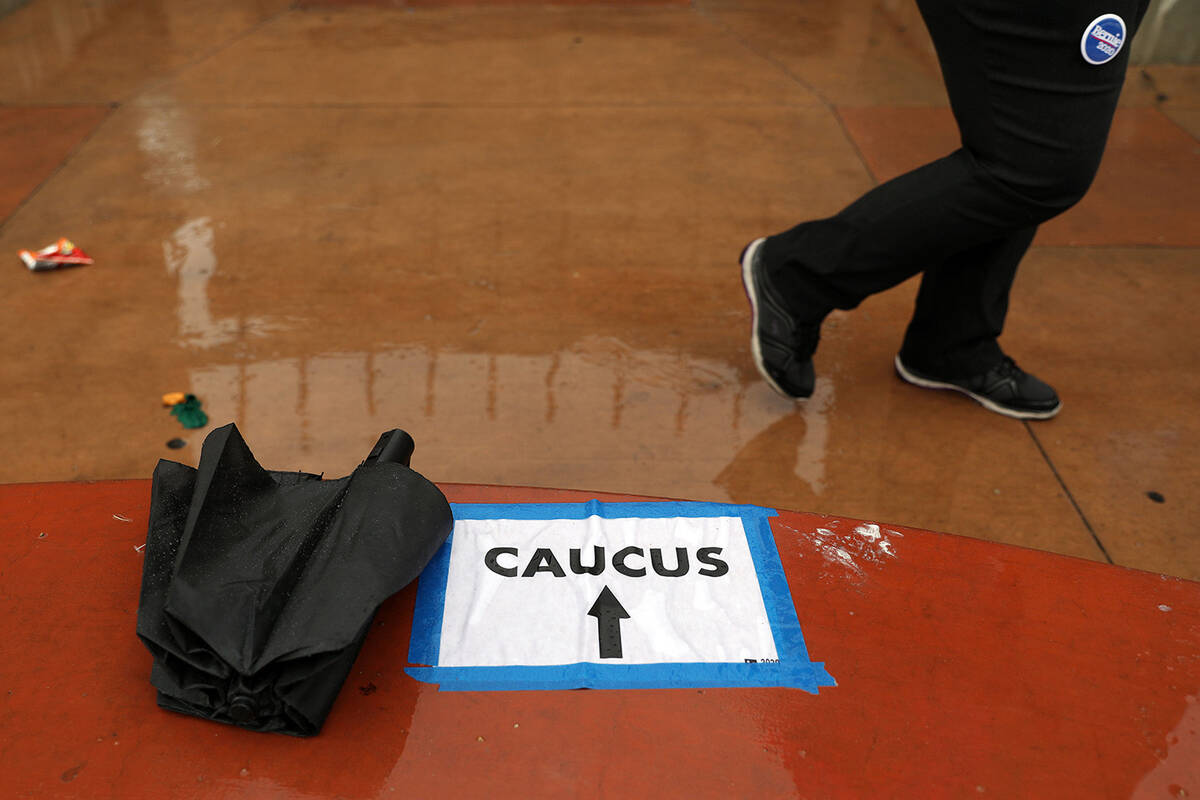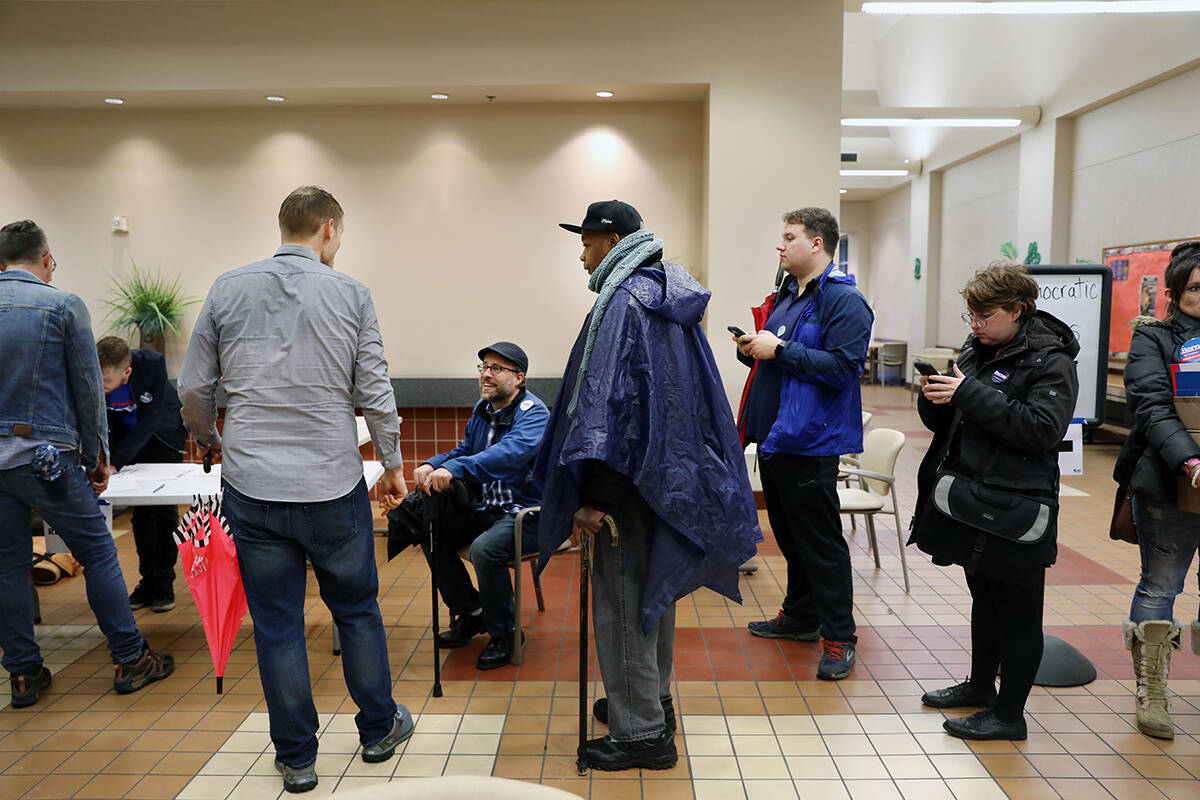Nevada GOP announces date for 2024 presidential caucus
The Nevada Republican Party announced it will hold its presidential caucus Feb. 8, two days after the state’s presidential preference primary.
“This event marks a crucial step in shaping the Republican nomination process for president and amplifies Nevada’s significance in the national political landscape,” the party said in a statement Monday.
The “First in the West Caucus” will provide Nevada voters the opportunity to engage with the candidates, discuss issues and voice their opinions on the direction of the Republican Party, the statement said.
In July, the party’s chairman, Michael McDonald, informed the Las Vegas Review-Journal of its plans to hold a caucus, despite the state running a presidential preference primary for both Democrats and Republicans as required by a 2021 state law that was pushed forward to give Nevada an early primary slot for Democrats.
In general, states want to move up earlier in the primary calendar in order to influence the nomination, UNLV political science professor Dan Lee previously told the Review-Journal.
With Nevada set as an early state for both Democrats and Republicans, the state can have more influence. In the past primaries, Nevada has favored former President Donald Trump, so having Nevada as an early state could help him, Lee said.
The Nevada Republican Party filed a lawsuit against the state in order to keep its longtime caucus tradition in place. The judge agreed with the attorney general’s office that the law does not bind either political party to the results of the state’s presidential preference primary. With that in mind, the party decided to hold its caucus anyway and use those results rather than the state’s.
The dual elections have prompted concerns that voters will be confused, as they might be unsure which process to participate in.
“I think it’s all about educating the electorate,” McDonald told the Review-Journal on Monday.
The state party is working with county party chairs to get the messaging out, and the state party is telling presidential candidates that they must not participate in the state presidential preference primary — such as filing a statement of candidacy with the state — or else they will not be able to participate in the caucus and will be awarded no delegates.
The dueling elections also have sparked a debate over voter accessibility and election security. The state argues that the presidential preference primary offers a greater opportunity to make Nevada voters heard in a secure election and provides flexibility through mail ballots and voting early.
The Nevada Republican Party — chaired by one of Nevada’s six “fake electors” who submitted false certificates declaring Trump the winner and who was vocal in repeating unproven claims of election fraud in 2020 — argues that the caucus process is more secure.
To participate in the caucus, Nevadans must be a registered Republican and must present a government-issued ID, according to the Nevada GOP’s website. Paper ballots will be used to vote, and the tabulation of the votes can be observed by all of the caucus participants.
Republican voters must participate in person, and the party is not allowing early voting or voting by mail, McDonald said.
The caucus will take place at 5 p.m. and will be hosted in multiple locations assigned by precinct location.
The results will be finalized on Feb. 8 and released to the public, according to the Nevada GOP’s website. The county conventions will take place by March 16, and between May 3 and May 4 the state convention will elect its national delegates, who will go to the Republican National Committee’s National Convention in Milwaukee on July 15 through July 18, according to the Nevada GOP’s website.
In previous Nevada GOP caucuses, however, it took more than one day for the results to be released.
In 2012, when Republicans were selecting the candidate who would run against then-President Barack Obama, the voters chose Mitt Romney by a wide margin. But the results were not released until two days later, despite fewer than 33,000 votes needing to be tabulated, because the votes needed to be recounted by hand in Clark County.
McDonald told the Review-Journal on Monday that after the issues in 2012, the party worked with consultants to figure out how to streamline the process and fix some glitches in the system that were slowing things down. In the 2016 caucus, 100 percent of precincts reported results by 2:30 a.m.
^
Contact Jessica Hill at jehill@reviewjournal.com. Follow @jess_hillyeah on X.
Parties' presidential primary early state calendar
*Tentative and subject to change*
Republicans:
Iowa: Jan. 15
New Hampshire: TBD
Nevada: Feb. 8
South Carolina: Feb. 24
Democrats:
South Carolina: Feb. 3
Nevada and New Hampshire: Feb. 6
Georgia: Feb. 13
Michigan: Feb. 27


















